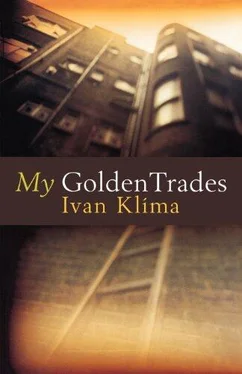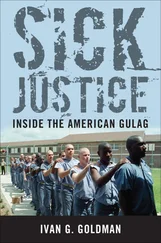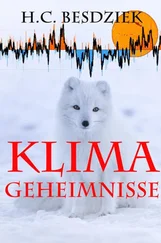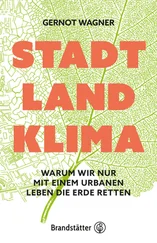Ivan Klima - My Golden Trades
Здесь есть возможность читать онлайн «Ivan Klima - My Golden Trades» весь текст электронной книги совершенно бесплатно (целиком полную версию без сокращений). В некоторых случаях можно слушать аудио, скачать через торрент в формате fb2 и присутствует краткое содержание. Год выпуска: 1998, Издательство: Granta UK, Жанр: Современная проза, на английском языке. Описание произведения, (предисловие) а так же отзывы посетителей доступны на портале библиотеки ЛибКат.
- Название:My Golden Trades
- Автор:
- Издательство:Granta UK
- Жанр:
- Год:1998
- ISBN:нет данных
- Рейтинг книги:4 / 5. Голосов: 1
-
Избранное:Добавить в избранное
- Отзывы:
-
Ваша оценка:
- 80
- 1
- 2
- 3
- 4
- 5
My Golden Trades: краткое содержание, описание и аннотация
Предлагаем к чтению аннотацию, описание, краткое содержание или предисловие (зависит от того, что написал сам автор книги «My Golden Trades»). Если вы не нашли необходимую информацию о книге — напишите в комментариях, мы постараемся отыскать её.
My Golden Trades — читать онлайн бесплатно полную книгу (весь текст) целиком
Ниже представлен текст книги, разбитый по страницам. Система сохранения места последней прочитанной страницы, позволяет с удобством читать онлайн бесплатно книгу «My Golden Trades», без необходимости каждый раз заново искать на чём Вы остановились. Поставьте закладку, и сможете в любой момент перейти на страницу, на которой закончили чтение.
Интервал:
Закладка:
The next day we brought a theodolite along. The surveyor levelled the instrument, tightened it on its pedestal, and began to focus in on the church tower while I, happy not to have either to dig or paint stakes, wrote down the angles he called out.
That evening the surveyor sat at his crippled table doing his calculations. The precision he worked to astonished me, especially since I know that slapdash work on our part would either never be discovered at all, or found out only after many years had gone by. Undoubtedly the knowledge that our measurements were as accurate as he could make them gave him satisfaction.
He was a rural man. He lived in a hamlet somewhere in the borderland between Bohemia and Moravia and he travelled about as far to Meštec as I did. His train arrived on Monday around ten; my bus from Prague got there an hour later. From that moment until Friday afternoon, we couldn't escape from each other; we even sat down to lunch
together. But both of us were silent types, and besides, there wasn't much time for conversation when we were working. I knew he was building an extension to his parents' house, in which he and his wife would live; that he was fattening up a bull he'd been given as a wedding present; that he ran for the fun of it, and played hockey and chess when he had the time.
He was my son's age; they both had finished their studies at the same time. And both had married only a few months before. He reminded me of my son, too, in his closed nature, and his kindly smile. These similarities inspired me to try to communicate with him on more than just a superficial level. But when people have no shared inheritance of work or songs or rituals or holy books or even heroes — when the bridges between us are fewer— what can bring them together?
Both of us were looking for a dining-room table.
Above the furniture store we occasionally drove past, a large red banner with yellow lettering on it declared that the aim of our ruling party was prosperity for all humanity. The surveyor would occasionally drop in to ask if they had a table. They never did. The bombastic claim over the doorway ridiculed us and we knew it, just as everyone who lived under this government of sloganeers knew it. Collectively humiliated, we shared contempt for those who humiliated us. But contempt and humiliation cannot uplift people and therefore cannot bring them closer together.
Sometimes I could see us as others saw us. Two figures of unequal age and position who moved through the countryside, across wet meadows and beet fields, carrying worn-out instruments and coloured stakes.
The older man would like to know what the younger
one thought about the world and whether he perhaps blamed his older companion for the state of the country. The older man has even prepared a defence should the question come up in conversation. He would explain what the war had done to him and his peers, how much anxiety and how many wrong-headed Utopian visions it had inspired in them. And he would explain the blindness that every vision produces.
He is apprehensive about the moment the younger man will begin this conversation, but he is even more apprehensive that the younger man will not start the conversation at all because the questions have never crossed his mind. Perhaps the old lies, the coup d'états, the wrongs, the controversies, the illusions, the torturing, the artifice and the crimes no longer interest him, just like the war, even further in the past. Perhaps the younger man thinks the grey cloud that has hung over his head all his life is the natural colour of the sky, if he ever looks up at it at all.
One day, the two men lose their way in the woods and start walking back down a hill in the wrong direction. The younger man, of course, has his spirit-level and his stopwatch, the older man his wire-brush, his machete and his box of paints and brushes, but none of these is any use in finding their way.
The younger man becomes upset. He is responsible for the work they are doing and for the car they have left in a field. He suggests they retrace their steps, but the older man is not enthusiastic about the idea. He doesn't feel like going back up the hill. Wandering through the woods makes far more sense to him than digging holes in the ground and burying slabs of concrete. He suggests they keep on
walking; they will certainly get somewhere eventually.
But what if that takes us further from the car? the younger man objects.
Don't think about the car.
This answer surprises the younger man, but then he says: I understand, but what do you expect to find?
He has a point. What is there to expect? What surprises? What unsurveyed countryside? What hope?
The younger man is waiting for an answer. He has not met many people in his life from whom he might expect a meaningful answer. He has been educated, of course: they handed him a lot of formulae, practical information and also many superstitions and half-truths about the world he lives in. At home, they raised him to be honest and diligent. One must work to live. But why he should live, that they didn't tell him, or didn't know.
Perhaps the older man has experience or knowledge that he could relate to his young friend — perhaps this is the reason for his being here.
But the younger man does not receive an answer; so he shrugs his shoulders and says, 'Whatever you think.'
So they continue on their way, not knowing where it will lead. The woods thin out, the air begins to smell strangely of cinders, smoke, even of sulphur, as though they were not walking through a wood, but the scene of some conflagration.
It's a good sign that he's come this way with me, the older man thinks. He says: 'Don't you think it's interesting that the act of measuring inevitably leads to a descent?'
The younger man does not understand what he means.
'We are constantly becoming more precise,' the older man explains, 'as we try to describe the Earth or the organization
of matter. We are forever finding smaller particles, but we can't seem to shift in the other direction.'
'But,' the younger man objects. 'We're always discovering new galaxies.'
'I'm not thinking of galaxies, I'm thinking of what's above us, I mean above man.'
The younger man nods.
'I was brought up to believe there was nothing above me,' says the older man. 'When the war came, they locked us up, and they murdered almost everyone in our family. Back then, the killing was going on all over the world. My father saw in that a confirmation of his beliefs: if God existed, he would never have allowed such cruel, unjust and pointless bloodshed. But others saw it as God's punishment for the sins of men. After all, the slaughter of children is presented in the Bible as one of the punishments for denying God.'
They are coming to a crossroads; it's not the right time to get involved in a discussion of abstract ideas. The younger man silently chooses one of the paths and continues walking.
'After the war,' the older man recalls, 'I knew other people who were locked up just as absurdly and arbitrarily as we were. This happened to our landlord's daughter, who was seventeen at the time.' The older man doesn't say out loud that in his imagination he had longed to make love to the girl. He only says that when she came back many years later and told him about her miserable internment in the camp, she mentioned that one thing had become clear to her there: it was simply not possible that man was the highest form of life in the universe.
'That's an interesting idea,' the younger man says.
'Sometimes people really can be worse than animals. Not long ago, I don't know if you read about it, some guy in England murdered a woman, a total stranger, right in front of her kids, then he went home, shot his mother and then went on the rampage and killed fourteen more people — just for fun. '
Читать дальшеИнтервал:
Закладка:
Похожие книги на «My Golden Trades»
Представляем Вашему вниманию похожие книги на «My Golden Trades» списком для выбора. Мы отобрали схожую по названию и смыслу литературу в надежде предоставить читателям больше вариантов отыскать новые, интересные, ещё непрочитанные произведения.
Обсуждение, отзывы о книге «My Golden Trades» и просто собственные мнения читателей. Оставьте ваши комментарии, напишите, что Вы думаете о произведении, его смысле или главных героях. Укажите что конкретно понравилось, а что нет, и почему Вы так считаете.












